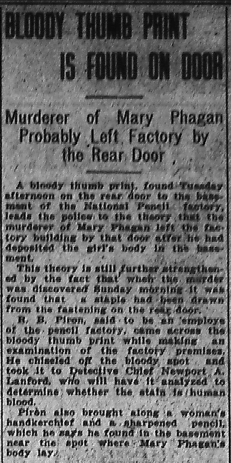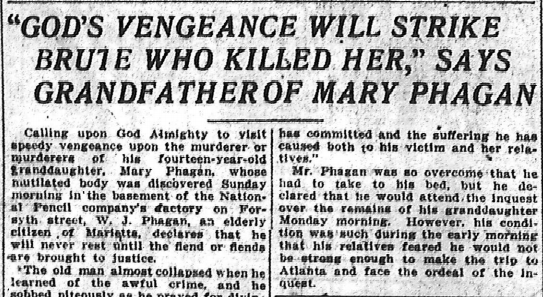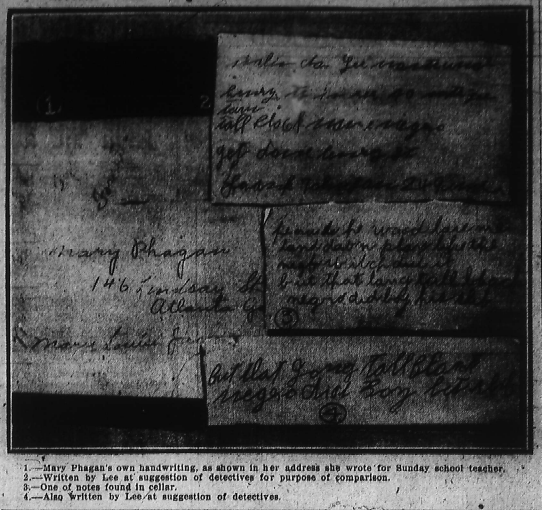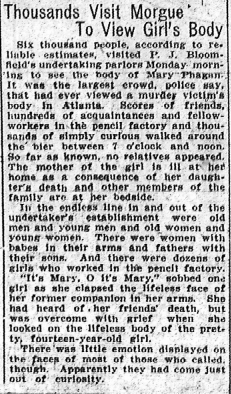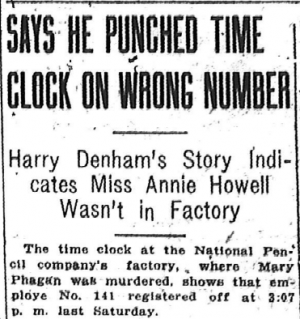 Another in our series of new transcriptions of contemporary articles on the Leo Frank case.
Another in our series of new transcriptions of contemporary articles on the Leo Frank case.
Atlanta Journal
Wednesday, April 30th, 1913
Harry Denham’s Story Indicates Miss Annie Howell Wasn’t in Factory
The time clock at the National Pencil company’s factory, where Mary Phagan was murdered, shows that employe [sic] No. 141 registered off at 3:07 p. m. last Saturday.
This is the number of Miss Annie Howell, of 664 East Fair street, and at first the detectives thought she might be able to throw some light on the mystery.
It developed later, however, that this must have been a mistake. Harry Denham, one of the men employed in the factory, claims that he punched her by mistake, and then punched his own number, which is 143, as a correction.
The clock shows that No. 143 was punched at 3:09 p. m. on Saturday.
* * *
Atlanta Journal, April 30th 1913, “Says He Punched Time Clock on Wrong Number,” Leo Frank case newspaper article series (Original PDF)

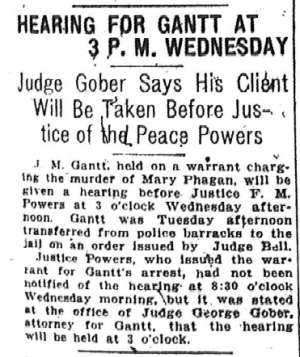
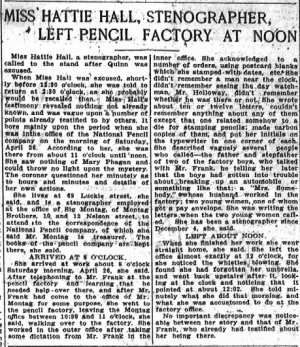
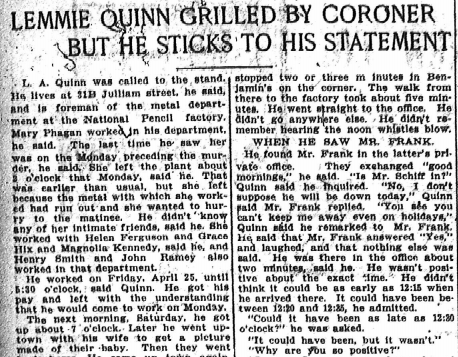
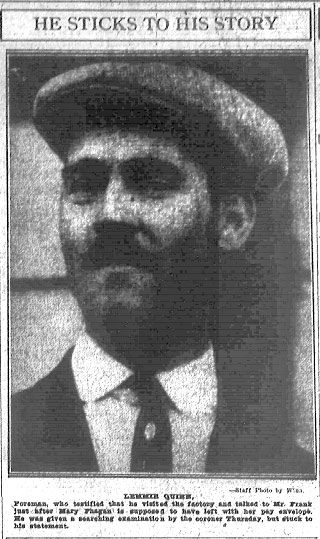
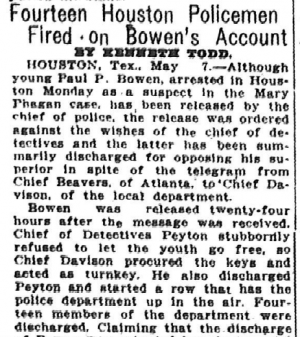
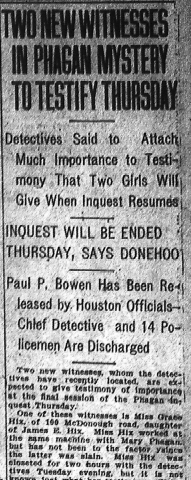
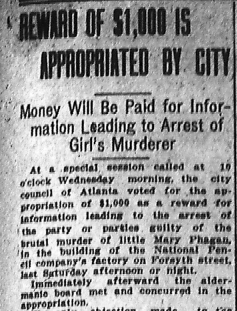
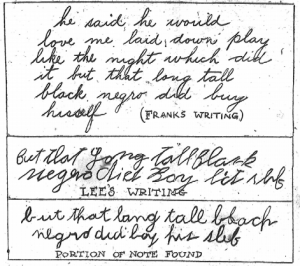
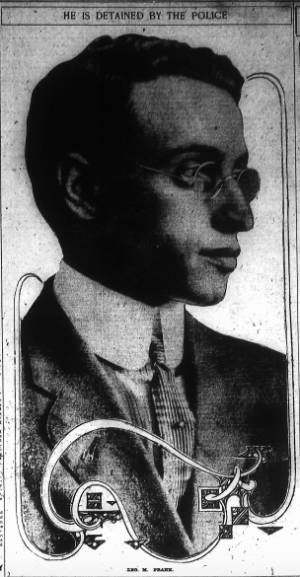
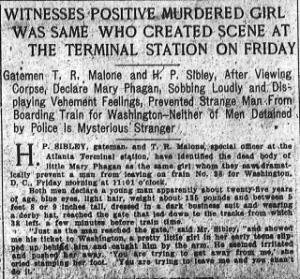

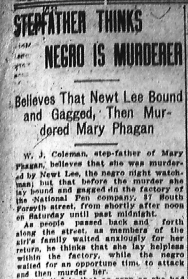
![J. M. Gant [sic], who was arrested at Marietta and brough[t] to Atlanta Monday, charged with the death of Mary Phagan. [Gantt was in the factory on the Saturday of the murder to pick up a pair of shoes he had left since leaving the Pencil company. Leo M. Frank was very reluctant to let him inside the building. Originally, Frank's behavior towards Gantt was assumed to be because of Gantt's recent firing, even though there were no bad relations between the two -- Ed.]](https://www.leofrank.org/wp-content/uploads/2016/03/State-Offers-Two-Hundred-Dollar-Reward-300x514.png)

